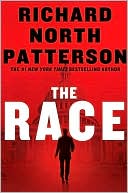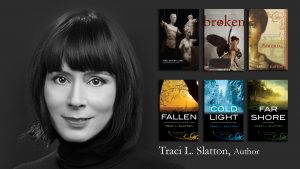Hoisted on My Own Petard
During one of my blogtalk radio interviews to promote IMMORTAL, I spoke about publishing houses and writers and the need for the two to find a common ground. Today that interviewer contacted me, asking if she could use some quotes she had culled from the interview. Sure, I said. It won’t be the first or last time my own words have come back to bite me in the tushie.
Here’s the thing: Publishing is in a sad state right now. One house is foundering like the Titanic. Another house fired a publisher and is being restructured into a larger conglomerate. Editors have been fired. The ones who remain are afraid to buy anything.
But is firing people and re-organizing really going to help the bottom line? I mean, is it really going to entice people to buy more books?
The problem, as I see it, is two-fold: 1, marketing people decide which books editors get to buy, not editors, and 2, writers all want to publish beautifully written literary novels that no one but their mother and best friend will buy.
Books are not widgets. Books are the Keepers of Soul. For thousands of years, people have been going to war over their Holy Books. They’re still wreaking death, destruction, dismemberment and other varieties of intolerance because of their Holy Books. Books have this extra dimension, this extra quality, that MUST be taken into account. Even by marketing people, who can be soul-less creatures.
BUT. Writers also need to take the market into account. We writers can be all too self-indulgent, because we are in love with words, with prose, with story in its most abstruse forms. But most people don’t want to buy a book just because it has pretty words and the story takes an intellectually shimmering shape.
There’s got to be a middle ground. I say: let editors have more say and marketing people LESS say. One reason for this: editors love books, while marketers love money. When marketers chose which books get published, we get the current state of book selling. That is, I go to the bookstore and 99% of what I see is crap. Most of it is all the same. Badly written serial-killer-suspense books, formula mysteries, predictable action-adventure or supernatural yarns, and celebu-drek. Then there are those select ‘literary’ tomes that someone has chosen to anoint, and those ‘literary’ novels are self-congratulatory, precious, self-indulgent, and just plain boring. They also have unlikeable characters. WHY WOULD ANYONE BUY ANY OF IT???
I read everything, really everything. I will even pick up a Harlequin romance. I consider this my market research. I just finished a book that epitomizes what is wrong with publishing today. It is Brad Meltzer’s BOOK OF LIES.
I apologize to Mr. Meltzer for the bad review, and I can only say that plenty of bloggers have trashed my novel IMMORTAL.
However: BOOK OF LIES was confusing, hard to follow, and clearly created to capitalize on the DA VINCI CODE-secret-Biblical-artifact-craze, or what’s left of it. It is more than obvious that some marketing person yelped with glee: “Hey, Cain and Abel, biblical secret, we got a flavor of the DA VINCI CODE and we can even pull in the Superman fans: yes!”
Unfortunately, it’s just not that interesting a story. No one cares much about how Cain killed Abel and if the weapon survived. Yes, we did care about Jesus being married and whether or not the Church suppressed that information for reasons of secular power. Now, that story has been told: MOVE ON.
Meltzer’s prose isn’t horrible. He seems to be trying with his characters and with the relationships between them. It just never all comes together to make me as a reader care about anyone or anything. And the sentimental glop (spoiler alert!) of “Tell your stories to your children” that is supposed to be the big finale, well, if the story were riveting, it would be a let-down. But since this novel is just so functional, utilitarian, and forgettable, it comes across as annoying and silly. Drivel.
But the appeal to a marketing director is so blatantly obvious, how could this novel NOT be published?
So novels will continue to be boring, silly, and the same, because marketers are infected with the notion, “If it sold once, we can beat the dead horse into a gelatinous pulp and sell it a million times.”
So general readers are bored and disaffected and they don’t spend their money on books. And writers aren’t motivated to do more than 1, appeal to marketers or 2, indulge our worst, most narcissistic love of an abstruse craft.





